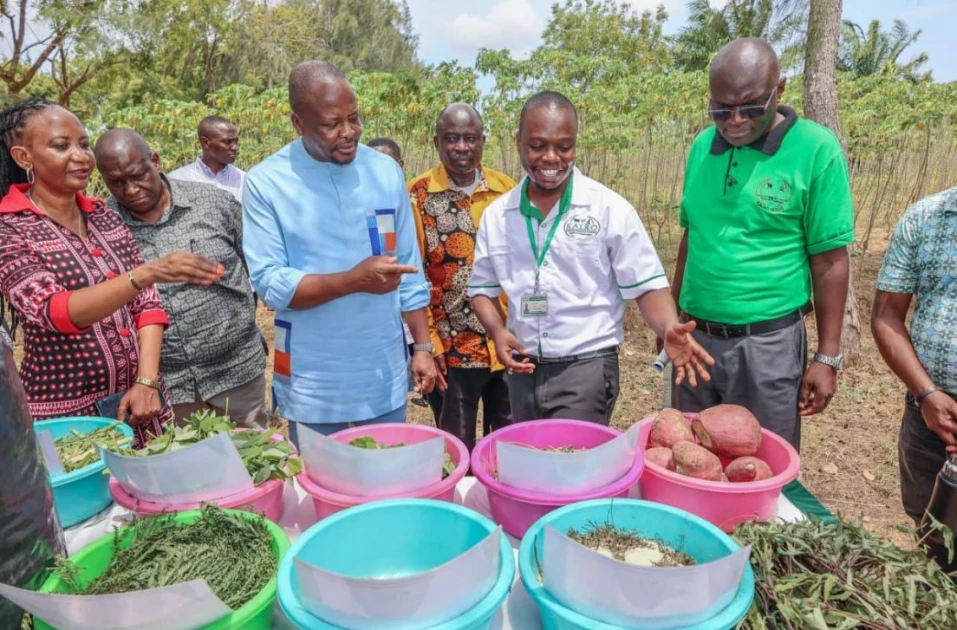'Kenya imports 5 billion eggs annually': CS Kagwe vows to end reliance

Agriculture CS Mutahi Kagwe visits the KALRO Msabaha Research Centre in Kilifi County, on October 25, 2025. Photo/MoALD

Audio By Vocalize
Speaking during a visit to the Kenya Agricultural and Livestock Research Organization (KALRO) Msabaha Research Centre in Kilifi County, CS Kagwe revealed that the country currently produces only 4 billion eggs annually, against a national demand of 9 billion, leaving a huge deficit that is filled through imports.
“We must stop importing eggs and start producing enough for ourselves. That requires farming guided by science, not guesswork,” said Kagwe.
The CS further expressed concern over the country’s reliance on food imports, saying Kenya spends approximately Ksh. 500 billion annually to import wheat, rice, eggs, and other food items.
“Why should we be importing eggs? I hear Kenchic is the main importer, and I will engage with them so that we address this. Anything we are importing as food, we must make sure we are not doing that,” he stated.
Kagwe also emphasized that Kenya’s path to food security lies in research, data, and science-based farming decisions, adding that agriculture should shift from traditional practices to innovation-driven systems.
During his tour, Kagwe observed ongoing research projects at KALRO, including the grafting of improved crop varieties and the formulation of nutritious livestock feeds, key innovations aimed at boosting productivity and resilience among farmers.
He noted that with a rapidly growing population and limited arable land, soil testing, proper input use, and precision agriculture are essential for increasing yields.
Kagwe also underscored the Ministry’s efforts to improve milk quality and production through better animal breeds and enhanced husbandry practices.
“We need more information from the scientists, and the information that is communicated must make sense. When you don’t communicate that information, it is akin to winking in the dark.”
Kagwe also called for greater collaboration between scientists and policymakers, ensuring that research findings are effectively shared with farmers.
“We need to be in touch with our scientists so that we can communicate what they have found out for our farmers’ benefit,” he said.
The CS urged the youth to take up modern farming, warning that the average Kenyan farmer is now 64 years old; a trend that threatens the future of agriculture.
“Our young people understand technology. Let’s pass the torch to them, they are the future of modern, scientific agriculture,” Kagwe emphasized.
He reiterated that Kenya’s agricultural transformation must be anchored in research, innovation, and evidence-based policy.


Leave a Comment